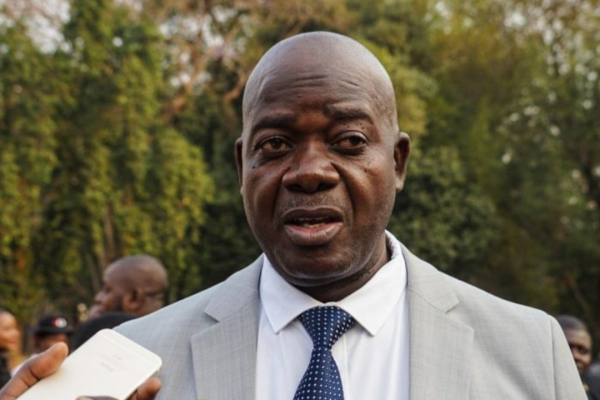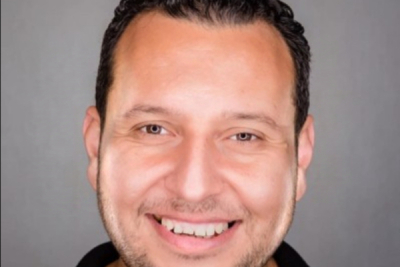Zimbabwe’s government is committed to a digital transformation, aiming to increase the use of information and communication technology (ICT) throughout the country. This includes plans to integrate ICT into all sectors, including education.
The Zimbabwean government has launched an initiative to deploy digital libraries in over 1,500 schools across the country. This was announced last week by Torerai Moyo, the Minister of Primary and Secondary Education, during the 57th annual conference of the Zimbabwe Library Association.
"By providing access to a wide range of resources, from traditional textbooks to digital media, libraries allow our learners to engage in exploratory learning that fosters creativity and skill development for problem-solving," stated the minister.
According to Moyo, this initiative is part of the government’s broader effort to improve access to educational resources, a fundamental pillar for the development of human capital and innovation, in line with the National Vision 2030. This strategic plan aims to elevate Zimbabwe to an upper-middle-income society by 2030, with a focus on digital advancements. The government places a strong emphasis on youth education, recently initiating discussions with LinkedIn, the professional social network, to enhance digital learning opportunities in the country.
However, several challenges could hinder the access and use of digital libraries, particularly limited internet access in certain areas. According to DataReportal, Zimbabwe had 5.48 million internet subscriptions, with 4G network coverage expected to reach 41.46% by 2024, as reported by Statista.
Isaac K. Kassouwi
Africa's digital economy is undergoing rapid expansion, but there is a growing need for infrastructure to support it. Creating a digital economic zone will provide the foundational infrastructure for this growth by enabling tech companies to operate in a streamlined, business-friendly environment.
Africa Finance Corporation (AFC) and Itana, Nigeria’s first licensed digital economic zone management company, have formalized a partnership to develop Africa's first digital economic zone. Announced at the Global Africa Business Initiative (GABI), on September 26, during the United Nations General Assembly (UNGA) in New York, the zone is intended to provide a seamless platform for global and Pan-African tech, finance, and service-based businesses to scale across Africa.
Samaila Zubairu, President & CEO of AFC, described the initiative as a "pivotal step" towards creating a hub for Africa’s digital economy, adding that it will cement “the Corporation’s commitment to driving innovation, job creation, and sustainable economic development across the continent.”
The Itana Digital Economic Zone, based in Lagos, Nigeria, will operate as an online jurisdiction, allowing businesses to incorporate and manage their operations remotely. This platform will be optimized with laws, tax incentives, and services geared toward supporting the digital economy, alongside eco-friendly live-work districts and a live-in accelerator program designed to foster innovation and sustainability in Africa’s tech ecosystem.
AFC will provide project development funding and lead the financing for phase 1 of the Itana project, which is expected to cost approximately $100 million. This phase includes the development of a tech campus in Lagos and startup funding through Accelerate Africa, a partnership between Itana and Future Africa.
This development provides a framework for businesses seeking to tap into Africa’s growing digital economy. The project will be located in Alaro City, within the Lekki Free Zone, and will collaborate with partners like Future Africa, PwC Nigeria, and the Charter Cities Institute.
Nigeria is home to one of the largest startup ecosystems in Africa. According to the Nigerian Investment Promotion Commission, the country raised over $1.2 billion in startup funding in 2021 alone. Creating a digital economic zone will provide much-needed infrastructure, legal frameworks, and incentives to accelerate the growth of these startups, making Nigeria a global tech player.
Hikmatu Bilali
Designed to help artisans reach a wider range of clients, it offers an Android app that enables those artisans to get their activities online.
Fundis is a digital solution developed by a Kenyan startup that connects users with professional artisans across various fields. Founded in 2019 by Liwali Kivumanyuki and Alex Ndegwa, the startup is based in Nairobi.
"Africa’s informal workforce is highly fragmented, characterized by low unpredictable earnings, poor working conditions, and low productivity. Beyond the fragmentation, many artisanal skills, knowledge, and competencies in use in Africa’s informal labor market have not been assessed, recognized, or certified, yet recruitment requires certification that the informal or non-formal market does not provide," explained Alex Ndegwa.
The mobile app, currently available only on Android, has been downloaded over a thousand times according to Play Store data. After downloading the app, users create an account to access its services. They can submit their requests through the app, which connects them with top professionals in their respective fields. Users can preview profiles and select the artisan for the job.
Once a selection is made, users can schedule an appointment for the work to be completed. Fundis offers professionals in plumbing, electrical work, carpentry, tiling, masonry, and home appliance repair. The startup aims to expand its services to other African countries, beginning with Tanzania, where it is already conducting trials for a full rollout by the end of 2024.
Adoni Conrad Quenum
Designed to improve smallholder farmers’ sales, it provides an online marketplace and delivery system to ensure efficiency. It also combat food waste through an aid program.
Fudlink is an agritech solution developed by a Namibian start-up, connecting farmers and buyers to logistics services through its web and mobile platforms. The start-up, based in Windhoek, was founded in 2021 by Twama Nghidinwa.
Fudlink has announced the official launch of its mobile app for Saturday, September 28. The app, available exclusively on Android, will feature all the functionalities of the web platform. "Our goal is to empower small farmers by giving them access to formal markets and building a logistics ecosystem that supports Namibia's agricultural sector," said Twama Nghidinwa.
Since its 2021 launch, the startup has operated primarily through its web platform, offering an online marketplace where small-scale farmers can register and sell their products. Fudlink has also implemented a delivery system. "Individuals and businesses with vehicles sign up as logistics service providers on our website, use their vehicles to deliver food, and are compensated for their services," Fudlink explains. This approach allows the company to create jobs and cover all regions of the country.
Moreover, Fudlink is committed to combating food waste. It has established a food aid program to redistribute surplus products that would otherwise be wasted or discarded to vulnerable communities and non-profit organizations.
Adoni Conrad Quenum
He is working to mitigate the effects of climate change and strengthen Africa's agricultural sector. To do this, he's using his technological know-how.
Christian Kusi (photo) is a Ghanaian expert in the Internet of Things (IoT), artificial intelligence (AI), robotics, and cybersecurity. He is also an entrepreneur, and the founder and CEO of Climate Tech Solutions, a startup focused on agricultural technologies.
Founded in 2021, Climate Tech Solutions aims to combat global hunger and promote sustainable farming practices. The company harnesses technologies like IoT, AI, and renewable energy to transform agriculture, especially in regions hardest hit by climate change.
Through AI, the company helps farmers improve crop yields. It develops smart farms that can be automated and monitored in real time, and provides solutions to ensure a consistent water supply for agriculture.
Christian Kusi also serves as a technology consultant at The Innovation Spark, an organization supporting Africa’s startup ecosystem. Additionally, he is a STEM (Science, Technology, Engineering, and Mathematics) instructor at Firefly IO, a non-profit organization focused on passing these skills on to young people.
He graduated from Valley View University in 2023 with a bachelor's degree in computer science. Between 2022 and 2024, he worked as a STEM instructor at InovTech STEM Center, a Ghanaian organization that provides STEM training and hands-on learning experiences for students of all ages. In 2023, he interned in machine learning at minoHealth AI Labs, a pioneering AI startup in the healthcare sector.
Melchior Koba
A serial entrepreneur, he is committed to developing technological solutions for the e-commerce sector. He has already co-founded three tech startups in Egypt.
Mohamed Ezzat (photo) is an Egyptian electronics engineer and entrepreneur. He is the co-founder and CEO of Bosta, a tech startup specializing in logistics and financial solutions for e-commerce.
Founded in 2017, Bosta is an innovative logistics company offering next-day delivery and rapid transfer services to e-commerce businesses in Egypt, Saudi Arabia, and the United Arab Emirates. Its mission is to simplify shipping—whether for small documents, parcels, or large items—for businesses of all sizes.
The startup claims over 25 stores, 15,000 sellers, and 1,000 representatives. According to its website, it is "the largest transportation company for e-commerce and the number one trusted delivery partner, providing an exceptional experience on both ends, with futuristic technology that places us at the forefront of the market.”
Before founding Bosta, Mohamed Ezzat co-founded Lynks in 2014, an e-commerce company where he served as Chief Operating Officer until 2016, and remains an advisor today. His first start-up, DealGamed, an online store focused on offering a wide range of products to customers, also launched in 2014.
Ezzat graduated from the Arab Academy for Science, Technology, and Maritime Transport in 2007 with a bachelor's degree in electronics and communications engineering. Between 2008 and 2015, he worked as a technical project manager at Alcatel-Lucent, a provider of communication, networking, and cloud services for businesses, before the company's acquisition by Nokia.
Melchior Koba
Digital payments provide access to financial services for unbanked or underbanked people. By facilitating easier and faster transactions, digital payments can boost economic activities. They reduce the costs associated with cash handling and improve the efficiency of businesses, especially small and medium-sized enterprises (SMEs).
KaiOS Technologies, a provider of affordable smart-feature phones, has partnered with Mastercard to integrate digital payment solutions into its devices, the latter announced on September 25. Starting in Cote d’Ivoire and Nigeria, this collaboration aims to empower small and medium-sized enterprises (SMEs) in developing markets by making digital payment acceptance more accessible and affordable.
Jorn Lambert, Mastercard’s Chief Product Officer, stated, "Acceptance fuels a successful digital economy. Our goal is to make it easy for merchants, from micro-merchants in Cote d'Ivoire to larger enterprises globally, to accept digital payments as easily as consumers make them."
Through this partnership, KaiOS-powered devices will offer Mastercard’s secure payment options, enabling even the smallest businesses to accept payments easily via Mastercard QR Pay by Link. Shortly, they will also support contactless payments using Tap & Go technology. Signing up for this service is simple, requiring business owners to use their KaiOS device to enroll, authenticate with a one-time password, and start accepting digital payments.
The partnership will initially focus on African markets, leveraging local partners like Touch and Pay Technologies (TAP) and Wizzit to extend these solutions to merchants across the continent.
As one of the continent's most active investment sectors, fintech plays a critical role in driving financial inclusion and digital transformation. According to Mastercard, fintech start-ups in Africa have emerged as one of the most vibrant sectors for investment, attracting close to $3 billion in funding.
By integrating digital payment solutions into affordable KaiOS-powered devices, this initiative taps into a rapidly growing market. It will help bridge the gap for small and medium-sized enterprises (SMEs) that have struggled with adopting digital payments due to cost barriers, contributing to the expansion of Africa's digital economy and supporting further investment in fintech. This initiative is expected to significantly boost financial inclusion and the digital economy in underserved regions.
Hikmatu Bilali
As businesses and governments accelerate digital transformation, demand for data storage, cloud computing, and AI capabilities is surging. This surge in demand is further fueled by emerging technologies, which generates vast amounts of data requiring advanced storage and processing capabilities.
Qatar-based telecom Ooredoo Group announced, on September 24, a major step in its data centre expansion plans, securing QAR 2 billion (US$549.4 million) in financing. The deal is backed by QNB, Doha Bank, and Masraf Al Rayan, with a 10-year hybrid facility aimed at accelerating Ooredoo's data centre and AI infrastructure capabilities across the Middle East and North Africa (MENA) region.
Ooredoo Group CEO Aziz Aluthman Fakhroo noted, "This financing deal marks a major milestone in our strategic vision for expanding our data center and AI business, and we are excited to meet the region’s increasing demand while upholding our commitment to sustainable, energy-efficient infrastructure."
The funds will be strategically used to separate existing data center assets from Ooredoo's telecom operations. It will focus on enhancing capacity and upgrading infrastructure to meet the increasing demand for AI, cloud services, and hyperconnectivity in the MENA region.
The financing deal marks a significant milestone in Ooredoo's efforts to build a robust digital infrastructure, driving growth in regional AI and cloud services, and positioning the company as a critical player in the burgeoning data economy of the MENA region.
This growth aligns with the broader trend in the MENA region, where demand for data centers is expected to rise due to increased cloud adoption and accelerated computing needs. According to MENA Data Center Market: Current Analysis and Forecast (2023-2030) by market research aggregator Global Information, the MENA data center market is projected to grow at a compound annual growth rate (CAGR) of 13.5% during the forecast period, driven by the rise of smart cities, e-commerce, and cloud adoption.
Hikmatu Bilali
She is an entrepreneur with several years of experience in the construction industry. Her goal is to help professionals in the sector enhance their performance.
Eya Hammouda, a Tunisian tech entrepreneur (photo), is the co-founder and CEO of BIMFLOW, a startup offering an immersive virtual reality (VR) platform designed for teams in the construction and real estate sectors. Founded in 2022, BIMFLOW allows construction professionals to virtually tour, collaborate, test, and revise projects in real time. The platform also optimizes workflows by automating repetitive tasks, saving time and resources, with the ultimate goal of improving efficiency in construction.
BIMFLOW’s solution, Stride, enhances teamwork by ensuring seamless collaboration across construction projects. From task delegation and progress tracking to identifying potential obstacles, Stride provides full visibility into every aspect of a project, helping teams stay on course and aligned with objectives.
In addition to her role at BIMFLOW, Hammouda is also the managing director of HK Consulting, a Tunisian firm active in the construction sector. She holds a master's degree in Energy, Environment, and Natural Resources Law from the Institut Supérieur des Sciences et Technologies de l’Environnement in Borj-Cedria, which she completed in 2012.
Hammouda began her career in 2011 as a media analyst at MediaScan, a marketing research firm. In 2012, she joined ETPPM (Entreprise de Travaux Publics Pétroliers et Maritimes), where she rose through the ranks from chief coordinator to director of marketing and business development. By 2015, she became director of public relations and marketing at Raven Prod, an audiovisual production company. In 2022, she also worked as an educational technologist at her alma mater in Borj-Cedria.
Hammouda has received numerous awards for her contributions to the industry. In 2022, she won the Workforce of the Future award at the Big 5 Impact Awards, which recognizes sustainability, collaboration, and technological advancements in the construction sector. In 2024, she was named one of the 50 finalists for Africa’s Business Heroes, a prestigious recognition celebrating Africa’s top entrepreneurs.
Melchior Koba
The Senegalese government is positioning artificial intelligence (AI) as a key driver of economic growth across various sectors. On September 19, the Ministry of Digital Economy unveiled a plan to reform the educational system to meet the evolving challenges and opportunities presented by AI.
Senegal's Minister of Communications, Telecommunications, and Digital Economy, Alioune Sall, met with Meta's Vice President Nick Clegg on September 25 to discuss a potential partnership for an AI data center in Senegal. The meeting took place on the sidelines of the 79th United Nations General Assembly in Washington.
The AI data center would enable the processing of large volumes of data and the execution of advanced algorithms, thereby accelerating the development and deployment of AI applications in the country. The Senegalese government has already launched several initiatives, including the creation of a national AI strategy. In January, former President Macky Sall unveiled a roadmap outlining priority actions, with a budget of 7 billion CFA francs (about $11.9 million) allocated for the next two years.
Digital technology is a key pillar of Senegal’s socio-economic development, and the government views AI as a "catalyst for the Plan for an Emerging Senegal, youth employment, economic performance, public sector transformation, sovereignty, and the attractiveness of the country." A July 2024 study by the Global System for Mobile Communications Association (GSMA) estimates that AI could boost Africa's economy by $2.9 trillion by 2030, equivalent to an annual GDP increase of 3%.
However, while AI holds significant economic potential for Senegal, its adoption faces challenges, such as limited internet access. According to DataReportal, the country's internet penetration rate stood at 60% for its approximately 18 million inhabitants at the beginning of 2024. This presents a hurdle to fully harnessing AI’s transformative potential in Senegal.
Isaac K. Kassouwi
More...
He actively encourages and supports the tech community in Africa. His efforts have been recognized with numerous awards and honors in his native South Africa.
Mixo Ngoveni (photo) is a South African tech entrepreneur and the founder and CEO of Geekulcha, a platform that connects information and communication technology (ICT) students with the professional world.
Founded in 2013, Geekulcha brings together young, skilled, creative, and ambitious talent in the tech sector. The platform fosters knowledge sharing and collaboration on various projects. It organizes tech events, offers training, and helps students enhance and strengthen their skills. Geekulcha also hosts hackathons and numerous tech events, providing its "geek" community with opportunities to develop digital skills. Its mission is to make South Africa’s tech ecosystem more competitive while ensuring that innovative tech solutions incorporate sustainability wherever possible.
Mixo Ngoveni holds a bachelor's degree in computer science, with a focus on business applications, which he earned in 2013 from Tshwane University of Technology. Between 2011 and 2013, he was a "Microsoft Student Partner" while also serving as an assistant at the mLab incubator. From 2018 to 2021, he was the head of Red Bull Basement in South Africa, a tech initiative from the Red Bull brand.
Ngoveni has been recognized and celebrated as one of South Africa’s top young leaders and entrepreneurs by various media outlets and organizations. Notably, he was featured in the Mail & Guardian's Top 200 Young South Africans in 2015 and was a finalist for the South African Institute of Information Technology Professionals (IITPSA) IT Personality of the Year award in 2017.
Melchior Koba
To ensure a successful digital transformation, Morocco is prioritizing the development of a highly skilled workforce. The country is strategically partnering with government agencies and private sector organizations to address this critical need.
Morocco's Ministry of Digital Transition and Administrative Reform on Wednesday announced the signing of three partnership agreements to support the country's "Morocco Digital 2030" strategy. The agreements, with government ministries, public institutions, and private sector stakeholders, aim to accelerate Morocco's digital ambitions.
The first agreement, a program contract for 2024-2030, focuses on developing the outsourcing sector. Signatories include the Ministry Delegate for the Budget, the Caisse de Dépôt et de Gestion, the Tanger Med Special Agency, and the Moroccan Agency for Investment and Export Development. The goal is to boost service migration and position Morocco as a regional outsourcing leader.
The second agreement, funded by the Ministry of Digital Affairs, will launch a scholarship program for doctoral assistants. In partnership with the Ministry of Higher Education and the National Center for Scientific and Technical Research, the program will offer 550 scholarships worth 7,000 dirhams per month for three years. It aims to foster research and innovation in digital technology.
The third partnership, financed by the Ministry of Digital Transition, will promote research in advanced technologies and train a new generation of digital specialists. In collaboration with the Ministry of Economic Inclusion, the agreement seeks to strengthen national expertise in these critical areas.
These agreements align with the "Morocco Digital 2030" strategy, which aims to create 240,000 direct jobs in the digital sector and contribute 100 billion dirhams to GDP by 2030. Morocco is committed to becoming a key player in the global digital economy.
Samira Njoya
The adoption of a digital traceability system facilitates better quality control and enhances the reputation of African produce globally. It will offer new opportunities for farmers and exporters while addressing the barriers that have historically hindered market access.
Uganda is adopting a digital traceability system aimed at boosting the global competitiveness of its fruit and vegetable farmers, Dr. Caroline Nankinga from the Ministry of Agriculture, Animal Industry and Fisheries revealed at a press conference held on September 23.
Dr. Nankinga emphasized the system’s role in enhancing efficiency, noting that, starting September 30, 2024, agricultural inspectors will use the platform to verify consignments, expediting operations.
The system, developed by the Re-engineering of Uganda's Sanitary and Phytosanitary Inspection of Horticulture Exports (RUSH) initiative, seeks to improve tracking of fresh produce from farms to Entebbe International Airport, ensuring compliance with international standards and reducing market access barriers caused by past interceptions. It is set to transform the inspection and certification process, replacing the outdated manual documentation methods with a streamlined digital platform.
One of the major benefits of RUSH is its ability to address long-standing challenges, such as delays and interception risks due to manual processes. Exporters can now upload essential documents online, enabling real-time compliance checks and swift corrective measures if issues arise during inspections.
Pests and diseases are major causes of export interceptions in Uganda. According to HortiFresh, a business membership organization that supports Uganda's Fresh Fruits and Vegetables (FFV) sector, in 2022, over 200 interceptions were reported due to pests, leading to substantial revenue losses for exporters. The RUSH system's digital traceability solution directly addresses these challenges by ensuring better monitoring, compliance, and real-time corrective actions. This can help reduce interceptions, safeguard revenue, and restore confidence in Uganda's agricultural exports.
Hikmatu Bilali
The technological revolution is steadily advancing across Africa, impacting every sector and offering numerous advantages. In the field of education, two tech entrepreneurs have developed a tailored solution specifically for schools.
Tespire is an innovative edtech solution developed by a Nigerian startup that enables schools to fully digitize their administrative systems while allowing parents to monitor every aspect of their children's education. Based in Abuja, the company was founded in 2022 by Abdulkadir Suleiman Lapai and Umar Madugu. In September 2024, Tespire announced the successful completion of a funding round, though the amount raised remains undisclosed, aimed at supporting its expansion efforts.
“Tespire’s vision goes beyond just fixing administrative issues. They are committed to using the power of data to increase access to quality education across Nigeria and other Sub-Saharan African countries, starting with local schools and scaling toward a broader national and international market,” stated Abdulkadir Suleiman Lapai.
The platform operates as a web portal where parents can directly access comprehensive school-related information, including tuition fees, class schedules, and enrollment processes. If a parent selects a Tespire-affiliated school, they can navigate to the school’s webpage from their computer, choose the application portal, and click "Go."
On the left side of the page, they select "New Applicants," fill in the necessary fields, and submit the application. If accepted, the parent receives an application number for their child. Subsequently, they can log into their dashboard to complete the enrollment process.
Access to Tespire's services incurs a fee. The startup offers various subscription plans for schools to join its partner database, with options starting at 2,000 naira (approximately $1.21), 2,500 naira, and higher. Tespire has ambitious plans for growth, aiming to expand its reach across Nigeria and into other countries within the region.
Adoni Conrad Quenum















